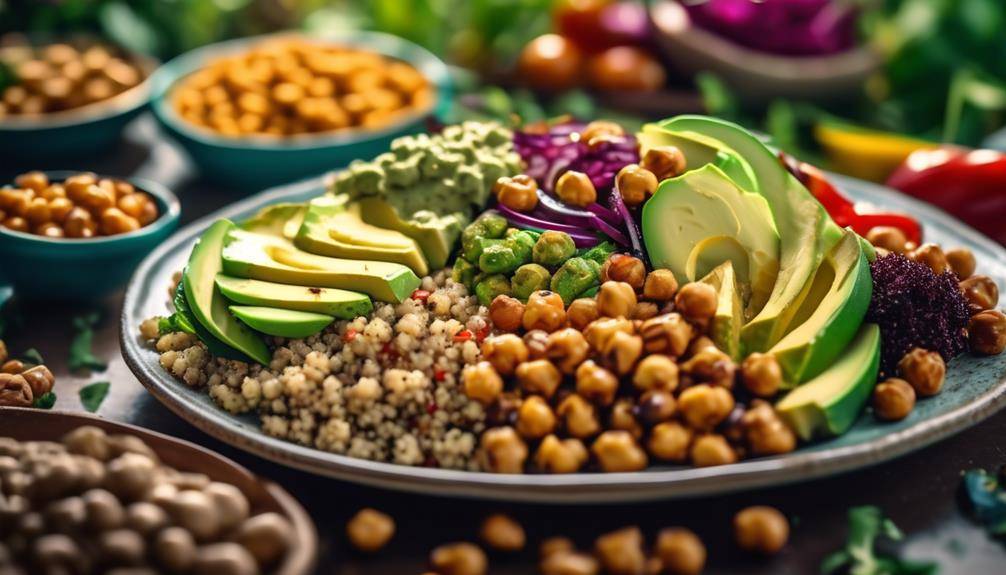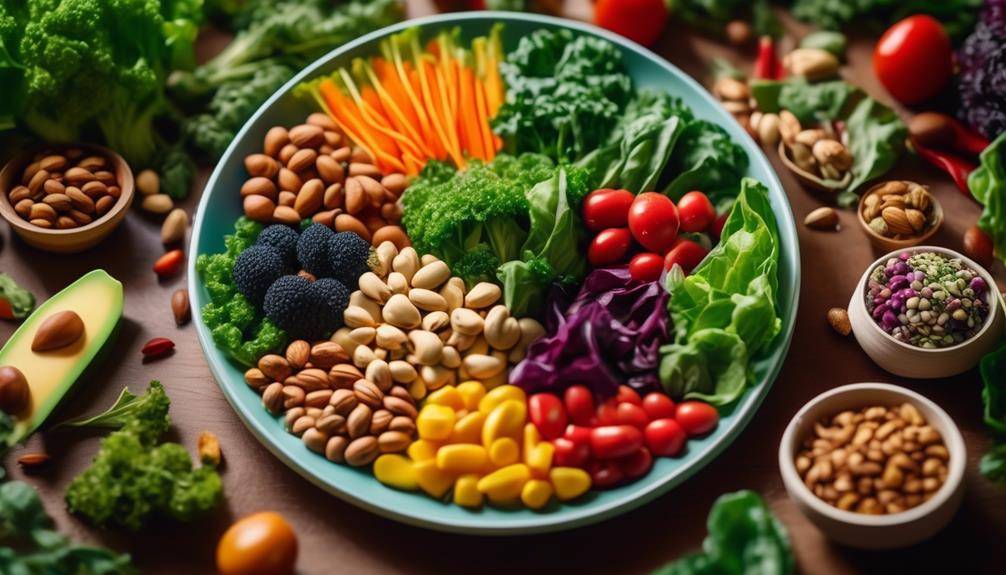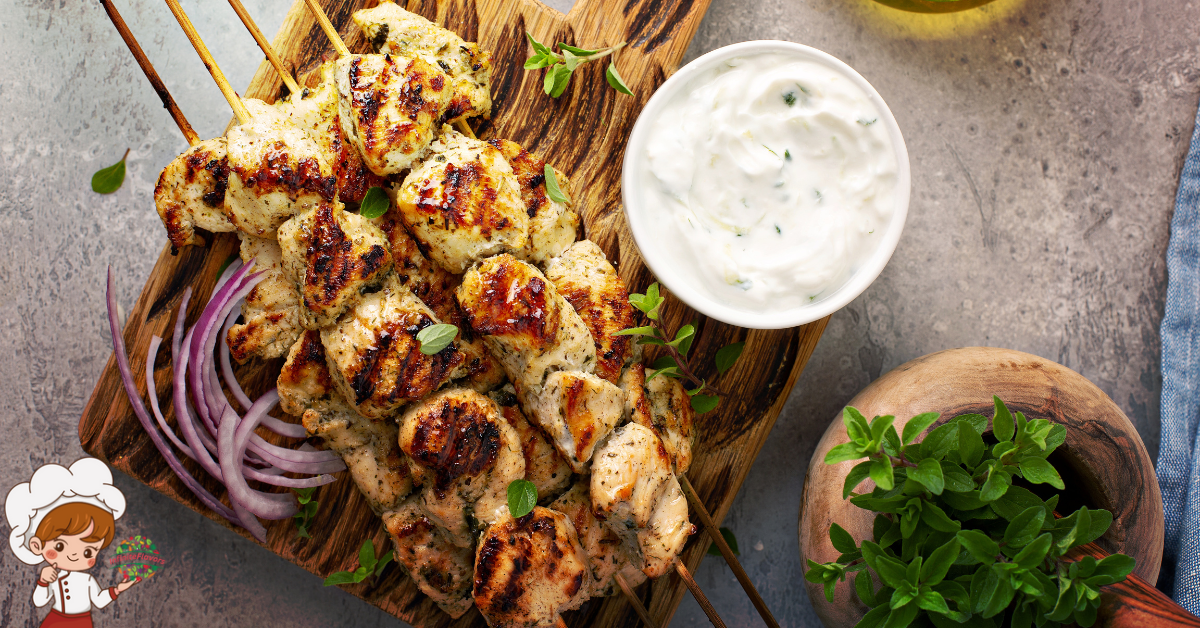Amazing Vegan Dietary Requirements for Weight Gain

Vegan Dietary Requirements for Weight Gain; Are you a vegan struggling to gain weight? Meet Sarah, a dedicated vegan athlete who was determined to build muscle and increase her weight. Despite her intense workouts, she found it challenging to achieve her desired gains solely through her plant-based diet. If you can relate to Sarah’s struggle, you’ve come to the right place. In this discussion, we will explore the specific dietary requirements for vegans looking to gain weight, including the importance of a calorie surplus, essential macronutrients, protein sources, high-calorie vegan foods, healthy fats, supplements, and effective strength training exercises. Get ready to discover the key to achieving your weight gain goals on a vegan diet.
The Importance of Calorie Surplus
Why is a calorie surplus important for vegan weight gain? When it comes to gaining weight on a vegan diet, one of the key strategies is to consume a calorie surplus. A calorie surplus occurs when you consume more calories than your body needs for daily activities and maintenance. This surplus of calories is essential for individuals aiming to increase their body weight, as it provides the necessary fuel for muscle growth and overall weight gain.
Calorie surplus benefits are crucial for vegan weight gain. Firstly, consuming more calories than your body requires prompts weight gain by providing the extra energy needed for muscle growth. This surplus of calories supports the process of hypertrophy, where muscle fibers increase in size, ultimately leading to an increase in overall body weight.
Moreover, calorie surplus benefits extend beyond muscle growth. Adequate calorie intake supports overall health and well-being. It ensures that your body has enough energy to perform daily activities, exercise, and maintain proper bodily functions. A calorie surplus also helps prevent the breakdown of muscle tissue for energy, ensuring that the body has enough fuel to support muscle growth and recovery.
To achieve a calorie surplus on a vegan diet, it is important to focus on consuming nutrient-dense foods that are high in calories. Incorporating healthy fats like avocados, nuts, and seeds, as well as consuming ample amounts of whole grains, legumes, and plant-based protein sources, can help you achieve your calorie goals. Additionally, using cooking oils and spreads, such as olive oil or nut butter, can increase calorie intake without adding excessive volume to your meals.
Essential Macronutrients for Weight Gain
To support vegan weight gain, it is crucial to focus on consuming essential macronutrients in adequate amounts. Macronutrients are the nutrients that provide energy and are required in large quantities by the body. Here are three essential macronutrients that play a key role in weight gain for vegans:
- Protein: Protein is essential for muscle growth and repair. It is made up of amino acids, which are the building blocks of our body. Consuming enough protein is important to support protein synthesis, the process by which the body builds new proteins. Plant-based protein sources for vegans include legumes, tofu, tempeh, seitan, quinoa, and hemp seeds.
- Carbohydrates: Carbohydrates are the body’s primary source of energy. They provide the fuel needed for physical activities and are also important for maintaining a healthy metabolism. To achieve weight gain, it is important to consume complex carbohydrates such as whole grains, fruits, vegetables, and starchy foods like potatoes and sweet potatoes.
- Healthy Fats: Healthy fats are a concentrated source of energy and are essential for various bodily functions. They also help in the absorption of fat-soluble vitamins. Good sources of healthy fats for vegans include avocados, nuts, seeds, and plant-based oils like olive oil and coconut oil.
While consuming macronutrients is important for weight gain, it is equally important to ensure a calorie surplus. This means consuming more calories than your body burns in a day. To achieve a calorie surplus, you can increase portion sizes, include calorie-dense foods, and eat more frequently throughout the day.
Protein Sources for Muscle Growth
When it comes to building muscle on a vegan diet, it’s important to focus on plant-based protein options. While animal products are often considered the go-to for muscle growth, there are plenty of plant-based alternatives that can provide the necessary amino acids for muscle repair and growth. From legumes and tofu to quinoa and hemp seeds, incorporating a variety of plant-based protein sources into your diet can help you meet your protein needs and support muscle growth.
Plant-Based Protein Options
One key aspect of a vegan weight gain diet is incorporating a variety of plant-based protein options to support muscle growth. Plant-based protein powders are a convenient and versatile option that can easily be added to smoothies or baked goods. They are often made from sources like peas, rice, or hemp, providing a complete amino acid profile.
Another option is tempeh, which is made from fermented soybeans and is high in protein and other nutrients. It can be marinated and grilled or used in stir-fries and salads. Lastly, tofu is a popular plant-based protein source that can be marinated, grilled, or used in a variety of dishes. Incorporating these protein options into your vegan meal prep will help support muscle growth while following a plant-based diet.
Importance of Amino Acids
Incorporating a variety of plant-based protein options, such as plant-based protein powders, tempeh, and tofu, is essential for supporting muscle growth on a vegan weight gain diet. These protein sources provide an array of amino acids, which are the building blocks of muscle tissue. Amino acids play a crucial role in muscle growth and repair. There are nine essential amino acids that the body cannot produce on its own and must be obtained through diet. Vegan athletes and individuals looking to gain muscle can ensure they are meeting their amino acid needs by consuming a diverse range of plant-based proteins.
However, in some cases, amino acid supplements may be necessary to ensure adequate intake, particularly for those with specific dietary restrictions or higher protein requirements. Consulting a healthcare professional or registered dietitian can help determine if amino acid supplementation is necessary for optimal muscle growth on a vegan weight gain diet.
High-Calorie Vegan Foods to Incorporate
To effectively gain weight on a vegan diet, it is important to incorporate high-calorie foods that are nutrient-dense. These foods provide the necessary energy and nutrients to support weight gain. Healthy fats, such as avocados and nuts, are excellent options as they are calorie-dense and offer numerous health benefits. Additionally, including protein-rich vegan choices like tofu, tempeh, and lentils can help support muscle growth and weight gain.
Nutrient-Dense Plant-Based Options
In order to meet your caloric needs and promote weight gain on a vegan diet, consider incorporating nutrient-dense plant-based options into your meals. These options will provide you with the necessary nutrients and calories to support your weight gain goals. Here are three sub-lists of nutrient-dense plant-based options that you can include in your diet:
- Nutrient-rich smoothies: Blend together fruits, vegetables, and plant-based proteins such as tofu or hemp seeds to create a high-calorie smoothie. Add nut butter or avocado for extra healthy fats.
- Vegan weight gain supplements: Consider incorporating vegan protein powders or weight gain supplements into your meals or snacks. Look for options that are made from plant-based proteins such as pea or rice protein.
- Whole grains and legumes: Incorporate whole grains like quinoa, brown rice, and oats, as well as legumes such as lentils, chickpeas, and black beans. These foods are rich in calories, protein, and fiber, which can aid in weight gain.
Healthy Fats for Weight Gain
To further support your weight gain goals on a vegan diet, let’s now explore the incorporation of high-calorie vegan foods that are rich in healthy fats. Incorporating healthy fats into a vegan diet is essential for satiety and providing the necessary calories for weight gain. While plant-based diets are naturally low in fat, there are plenty of options available to help you meet your goals.
Nuts and seeds, such as almonds, walnuts, and chia seeds, are excellent sources of healthy fats. Avocados and coconut products, like coconut milk and oil, are also high in healthy fats and can be incorporated into your meals and snacks. Additionally, plant-based oils like olive oil and flaxseed oil can be used in cooking or as dressings to add healthy fats to your dishes. By including these high-calorie vegan foods rich in healthy fats, you can effectively support your weight gain journey.
Protein-Rich Vegan Choices
Incorporating protein-rich vegan choices into your diet is crucial for supporting weight gain goals while following a plant-based lifestyle. Protein is essential for muscle growth and repair, and it can help you achieve your desired weight gain. Here are some high-protein vegan options to include in your meal plan:
- Legumes: Foods like lentils, chickpeas, and black beans are not only high in protein but also provide essential nutrients like fiber and iron.
- Tofu and tempeh: Both tofu and tempeh are excellent sources of protein and can be used as meat substitutes in various dishes.
- Vegan protein powders: These supplements can be added to smoothies or shakes to increase your protein intake. Look for ones made from pea, rice, or hemp protein.
When planning your vegan weight gain meal plan, be sure to incorporate these protein-rich choices to optimize your nutritional intake and support your weight gain goals.
Healthy Fats for Optimal Weight Gain
Including healthy fats in your vegan diet is essential for optimal weight gain. While protein is important for muscle growth, healthy fats play a crucial role in providing energy and supporting various bodily functions. Not all fats are created equal, and it’s important to focus on consuming the right types of fats to support your weight gain goals.
One type of healthy fat that is particularly beneficial for muscle growth is omega-3 fatty acids. These fats have been shown to reduce inflammation, promote muscle protein synthesis, and enhance recovery from exercise. While fish is a common source of omega-3s, there are vegan alternatives available. Flaxseeds, chia seeds, and walnuts are all excellent sources of plant-based omega-3 fatty acids. Incorporating these foods into your diet can help ensure you’re getting the essential fats you need for optimal weight gain.
In addition to omega-3 fatty acids, it’s important to include other healthy fats in your diet. Avocados are an excellent source of monounsaturated fats, which have been shown to improve insulin sensitivity and support weight gain. Nuts and seeds, such as almonds, cashews, and sunflower seeds, are also great sources of healthy fats. Including these foods in your meals and snacks can help boost your calorie intake and provide the nutrients necessary for healthy weight gain.
Complex Carbohydrates for Sustained Energy
Consuming complex carbohydrates is crucial for sustaining energy levels and supporting healthy weight gain on a vegan diet. Complex carbohydrates are a type of carbohydrate that contains longer chains of sugar molecules. They are digested more slowly by the body, providing a steady release of energy over a longer period of time. Here are three important reasons why complex carbohydrates should be included in your vegan weight gain diet:
- Sustained Energy: Complex carbohydrates are broken down more slowly in the body, resulting in a gradual release of glucose into the bloodstream. This provides a steady supply of energy, preventing energy crashes and keeping you feeling energized throughout the day.
- Fiber and Nutrients: Complex carbohydrates, such as whole grains, legumes, and starchy vegetables, are rich in fiber and essential nutrients. Fiber helps regulate digestion and promotes feelings of fullness, preventing overeating. Additionally, complex carbohydrates provide important vitamins, minerals, and antioxidants that are vital for overall health and wellbeing.
- Balanced Macronutrients: While protein sources are important for weight gain, it’s equally important to include complex carbohydrates in your diet to ensure a balanced macronutrient profile. Complex carbohydrates, along with healthy fats and protein, provide the necessary components for muscle growth and repair, supporting healthy weight gain and overall body composition.
When looking for vegan snacks to include in your weight gain diet, opt for complex carbohydrate-rich options. Examples include whole grain bread or crackers with nut butter, oatmeal topped with fruits and nuts, and roasted chickpeas. These snacks provide a combination of complex carbohydrates, protein, and healthy fats, making them ideal for sustaining energy levels and supporting healthy weight gain.
Nutrient-Dense Snacks for Extra Calories
To continue supporting healthy weight gain on a vegan diet, it is important to choose nutrient-dense snacks that provide extra calories. These snacks can help you meet your caloric needs while ensuring that you are getting the necessary nutrients for optimal health. One option to consider is vegan weight gain smoothies. These smoothies can be made with ingredients such as plant-based protein powder, nut butter, fruits, and vegetables. By blending these ingredients together, you can create a delicious and calorie-dense snack that is packed with nutrients. Adding healthy fats like avocados or coconut oil can also increase the calorie content of your smoothie.
Another option for nutrient-dense snacks is high calorie vegan desserts. These desserts can satisfy your sweet tooth while providing the extra calories you need for weight gain. Some examples of high calorie vegan desserts include energy balls made with nuts, dates, and seeds, or vegan cookies made with ingredients like coconut oil, almond butter, and oats. These desserts can be enjoyed as a snack or as part of a meal to boost your calorie intake.
It’s important to note that while these snacks can be calorie-dense, it’s still essential to choose foods that are nutrient-rich. Opt for whole foods whenever possible, and aim to include a variety of fruits, vegetables, whole grains, legumes, and nuts in your snacks. This will ensure that you are getting a wide range of vitamins, minerals, and antioxidants to support your overall health.
Hydration and Its Role in Weight Gain
Staying hydrated is crucial for supporting healthy weight gain on a vegan diet. Adequate hydration plays a significant role in various bodily functions, including digestion, nutrient absorption, and metabolism. When it comes to weight gain, hydration helps ensure that your body is functioning optimally, allowing you to absorb and utilize nutrients efficiently. Here are some vegan hydration tips and the benefits of adequate hydration:
- Drink plenty of water: Water is essential for maintaining proper hydration levels. Aim to drink at least 8 cups (64 ounces) of water per day. Carry a reusable water bottle with you to encourage regular hydration throughout the day.
- Consume hydrating foods: Include fruits and vegetables with high water content in your diet. Watermelon, cucumbers, strawberries, and leafy greens like lettuce and spinach are excellent choices. These foods not only contribute to your hydration but also provide essential vitamins, minerals, and fiber.
- Opt for herbal teas: Herbal teas, such as peppermint, chamomile, or hibiscus, can be a hydrating and refreshing alternative to plain water. Avoid caffeinated beverages, as they can have a diuretic effect and increase water loss.
Benefits of adequate hydration:
- Improved digestion: Proper hydration helps maintain healthy digestion by softening stools and preventing constipation. This allows your body to efficiently absorb nutrients from the vegan foods you consume, supporting weight gain.
- Enhanced metabolism: Staying hydrated can boost your metabolism, leading to increased calorie burning and improved weight management. It also helps regulate body temperature and aids in fat metabolism, further supporting healthy weight gain.
- Increased energy levels: Dehydration can lead to fatigue and decreased energy levels. By staying adequately hydrated, you can maintain optimal energy levels, allowing you to engage in physical activities and build muscle mass to support weight gain.
Vegan Meal Planning Strategies
Planning your vegan meals strategically can be a key factor in achieving your weight gain goals. Vegan meal prepping is an effective way to ensure you have nutritious and calorie-dense meals readily available. By dedicating some time each week to plan and prepare your meals, you can take control of your nutrition and make sure you are consuming enough calories to support your weight gain journey.
When it comes to vegan meal prepping, it is important to focus on incorporating a variety of nutrient-dense foods into your meals. Include plenty of whole grains, legumes, nuts, seeds, and fruits and vegetables to ensure you are getting a wide range of essential vitamins, minerals, and fiber. These foods are also rich in healthy fats and protein, which are crucial for weight gain.
In addition to meal prepping, you may also consider incorporating weight gain supplements into your vegan meal plan. These supplements can provide a convenient and efficient way to increase your calorie intake. Look for vegan-friendly options such as plant-based protein powders, meal replacement shakes, and energy bars. Be sure to choose supplements that are free from animal products and that align with your dietary preferences and goals.
Pre- and Post-Workout Nutrition Tips
When it comes to optimizing your vegan meal plan for weight gain, it is crucial to consider your pre- and post-workout nutrition. Proper fueling before and after exercise plays a vital role in muscle recovery and growth. As a vegan, you can still meet your nutritional needs by following these pre- and post-workout nutrition tips:
- Pre-workout nutrition:
- Consume a balanced meal consisting of carbohydrates, protein, and healthy fats about 1-2 hours before your workout. This provides the necessary energy for optimal performance.
- Include complex carbohydrates like whole grains, fruits, and vegetables to sustain energy levels during your workout.
- Incorporate a sufficient amount of plant-based protein sources such as tofu, lentils, tempeh, or seitan to support muscle repair and growth.
- Post-workout nutrition:
- Consume a meal or snack within 30 minutes to an hour after your workout to replenish glycogen stores and aid in muscle recovery.
- Focus on consuming a combination of carbohydrates and protein to maximize muscle repair. Good sources of vegan protein include beans, legumes, quinoa, and plant-based protein powders.
- Include antioxidant-rich foods such as berries, leafy greens, and nuts to reduce inflammation and support overall recovery.
In addition to considering pre- and post-workout nutrition, vegan meal prepping can also contribute to weight gain. By planning and preparing your meals in advance, you can ensure that you have a variety of nutrient-dense foods readily available. This helps you meet your calorie and macronutrient goals consistently, which is essential for weight gain. Incorporate a mix of whole grains, legumes, fruits, vegetables, and plant-based protein sources into your meal prep to ensure a well-rounded and balanced vegan diet.
Supplements for Vegan Weight Gain
To support your vegan weight gain journey, incorporating certain supplements can be beneficial. While a well-rounded plant-based diet can provide you with most of the nutrients you need, there are specific supplements that can help optimize your weight gain efforts. When choosing supplement brands, look for those that are vegan-friendly, free from animal-derived ingredients, and preferably certified by a reputable third-party organization.
One important supplement to consider is a vegan protein powder. Protein is essential for muscle growth and repair, and consuming an adequate amount can support your weight gain goals. Look for protein powders made from sources such as pea, rice, or hemp, as they are complete proteins and provide all the essential amino acids your body needs.
In addition to protein powder, you may also benefit from adding a vegan weight gainer supplement to your routine. These supplements are typically high in calories and contain a mix of carbohydrates, proteins, and healthy fats. They can help you reach your daily calorie goals and provide the extra nutrients needed for weight gain.
When it comes to meal prep tips, consider preparing large batches of meals and snacks in advance. This will save you time and ensure you always have nutritious options on hand. Include a variety of whole grains, legumes, fruits, vegetables, and plant-based proteins in your meal prep to meet your nutritional needs.
Effective Strength Training Exercises
Incorporating effective strength training exercises into your routine can greatly enhance your vegan weight gain journey. Building muscle is essential for increasing your overall body weight and achieving your weight gain goals. Here are some effective vegan workout routines and strength training tips to help you maximize your results:
- Compound exercises: Incorporate compound exercises into your workout routine. These exercises work multiple muscle groups at once and are efficient for gaining strength and muscle mass. Examples of compound exercises include squats, deadlifts, bench presses, and overhead presses.
- Progressive overload: Gradually increase the weight or resistance you use during your workouts. This technique stimulates muscle growth and helps you continually challenge your muscles. Keep track of your progress and aim to increase the weight or resistance over time.
- High-intensity interval training (HIIT): Incorporate HIIT workouts into your routine to maximize calorie burn and increase muscle endurance. HIIT involves short bursts of intense exercise followed by periods of rest. This type of training can help you build muscle while also burning fat.
- Proper form and technique: It is crucial to perform exercises with proper form and technique to prevent injuries and maximize muscle activation. If you are unsure about the correct form, consider working with a qualified personal trainer who can guide you.
- Rest and recovery: Allow your muscles time to recover and rebuild between workouts. Getting enough sleep, eating a balanced diet, and incorporating rest days into your routine are all important aspects of effective strength training.
Incorporating Resistance Training Into Your Routine
To maximize your vegan weight gain journey, it is essential to incorporate resistance training into your routine. Effective vegan workouts that focus on resistance training can help you build muscle and increase strength. By engaging in plant-based muscle building exercises, you can reap the benefits of resistance training, such as improved body composition and enhanced metabolic rate.
Effective Vegan Workouts
Achieve optimal results in your vegan workouts by incorporating resistance training into your routine. Vegan workout plans can be just as effective as non-vegan ones when it comes to building muscle. Here are some vegan muscle building tips to help you get started:
- Focus on protein-rich plant-based foods: Include sources like tofu, tempeh, lentils, chickpeas, quinoa, and hemp seeds in your diet to ensure you’re getting enough protein for muscle growth.
- Prioritize compound exercises: Incorporate compound movements like squats, deadlifts, bench presses, and overhead presses into your workouts. These exercises engage multiple muscle groups simultaneously, leading to greater overall muscle development.
- Gradually increase weight and intensity: Progressive overload is key to stimulating muscle growth. Start with lighter weights and gradually increase as your strength improves.
- Allow for proper rest and recovery: Muscles grow during periods of rest, so make sure to get enough sleep and allow time for recovery between workout sessions.
Plant-Based Muscle Building
To maximize the results of your vegan workouts and build muscle effectively, it is essential to incorporate resistance training into your routine. Plant-based weightlifting can provide you with the necessary tools to achieve your fitness goals while following a vegan diet. Resistance training, such as lifting weights or using resistance bands, helps stimulate muscle growth by creating small tears in the muscle fibers.
As your body repairs these tears, the muscles become stronger and larger. To support vegan muscle growth, ensure you consume enough protein from plant-based sources like legumes, tofu, tempeh, and quinoa. Additionally, include a variety of fruits, vegetables, whole grains, and healthy fats in your diet to provide essential nutrients for optimal muscle recovery and growth. By combining plant-based weightlifting with proper nutrition, you can build muscle effectively while following a vegan lifestyle.
Resistance Training Benefits
Incorporating resistance training into your routine offers numerous benefits for your overall fitness and muscle development. Here are some key benefits of incorporating resistance training:
- Increased muscle strength and tone: Resistance training helps to build and strengthen your muscles, resulting in improved overall strength and muscle definition.
- Enhanced metabolism: Resistance training increases your metabolic rate, allowing you to burn more calories throughout the day, even at rest.
- Improved bone health: Resistance training stimulates bone growth and helps prevent age-related bone loss, reducing the risk of osteoporosis.
Tracking Progress and Making Adjustments
You can track your progress and make necessary adjustments along your vegan weight gain journey to ensure you are meeting your dietary requirements effectively. Tracking your progress is crucial as it allows you to monitor your weight gain, assess the effectiveness of your current dietary plan, and make any necessary changes to reach your goals.
One of the most effective ways to track your progress is by regularly weighing yourself. This will give you an idea of how much weight you are gaining over time. Keep a record of your weight in a journal or on an app to easily visualize your progress. Additionally, you can also take measurements of your body, such as waist circumference, to track changes in your body composition.
Another important aspect of tracking progress is monitoring your food intake. Keeping a food diary or using a nutrition tracking app can help you ensure you are meeting your dietary requirements and consuming enough calories and macronutrients. This allows you to identify any deficiencies or imbalances in your diet and make necessary adjustments.
As you track your progress, it is important to periodically reassess and adjust your goals. This may involve consulting with a registered dietitian or nutritionist who specializes in vegan nutrition. They can help you determine if you need to increase your calorie intake, adjust your macronutrient ratios, or modify your meal plan to optimize weight gain.
Vegan Dietary Requirements for Weight Gain; Frequently Asked Questions
Can Vegan Weight Gain Be Achieved Without Consuming Excessive Amounts of Processed Foods?
You can achieve vegan weight gain without consuming excessive processed foods. Explore high calorie plant-based options like nuts, seeds, avocados, nut butters, tofu, tempeh, and legumes. These alternatives provide essential nutrients while promoting healthy weight gain.
How Can Vegans Ensure They Are Getting Enough Vitamins and Minerals While Trying to Gain Weight?
To ensure you’re getting enough vitamins and minerals while gaining weight as a vegan, incorporate nutrient-dense foods like legumes, whole grains, nuts, and seeds into your meal plans. Additionally, consider vegan weight gain supplements to meet your nutritional needs.
Are There Specific Vegan Foods That Can Help With Muscle Recovery After a Workout?
To aid in muscle recovery after a workout, focus on vegan post-workout nutrition. Incorporate plant-based protein sources, like tofu, tempeh, and lentils, which provide essential amino acids needed for muscle repair and growth.
Can Vegan Weight Gain Be Achieved Without the Use of Protein Powders or Supplements?
Yes, you can achieve vegan weight gain without protein powders or supplements. Focus on consuming a variety of whole plant-based foods like legumes, nuts, seeds, tofu, tempeh, and quinoa to meet your protein and calorie needs.
How Can Vegans Effectively Track Their Progress and Make Adjustments to Their Weight Gain Journey?
To effectively track your progress and make adjustments to your weight gain journey as a vegan, keep a detailed food diary, regularly measure your body composition, and consult with a registered dietitian for personalized guidance.
Conclusion
In conclusion, a vegan diet can support weight gain when structured properly. By consuming a calorie surplus and incorporating essential macronutrients like protein and healthy fats, individuals can achieve their weight gain goals. Additionally, incorporating strength training exercises and tracking progress can help optimize results. It is important to consult with a healthcare professional or registered dietitian to ensure individual dietary needs are met for healthy weight gain on a vegan diet.








